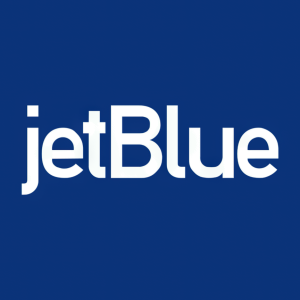JetBlue Releases Analysis Further Demonstrating Procompetitive Benefits of Combination with Spirit
Data Shows JetBlue Is Over Three Times More Effective at Lowering Legacy Fares Than Spirit;
Analysis Adds to Compelling Rationale for JetBlue-Spirit Combination
-
JetBlue is over 3x more effective than Spirit at bringing down competitor fares. JetBlue’s unique combination of low fares and great service is a competitive force that keeps the legacy carriers on their toes and results in lower fares. This is the “JetBlue Effect,” an outcome specifically cited by theU.S. Department of Justice . An economic analysis found thatJetBlue is proven on average to be over 3x as effective at lowering legacy carrier nonstop fares than Spirit. With the scale unlocked by combining with Spirit,JetBlue will be able to bring down legacy carrier fares on more routes, benefitting more travelers than ifJetBlue and Spirit continued as standalone airlines. -
JetBlue and Spirit primarily compete with other carriers not each other. According to a third-party source published inApril 2022 and reaffirmed with more recent data,JetBlue and Spirit have very limited overlap, and only overlap on11% or less of the nonstop routes on which both of them fly. Instead, both carriers primarily compete against the dominant Big Four airlines. -
Proposed divestitures materially reduce limited overlap. To address potential concerns around the limited overlap between
JetBlue and Spirit,JetBlue has already made unprecedented upfront commitments to divest all of Spirit’s holdings inBoston andNew York , as well as five gates and related assets atFort Lauderdale , to allow for allocation to other ultra-low-cost carriers (ULCCs). These divestitures significantly reduce the already small number of nonstop overlap routes flown byJetBlue and Spirit. - ULCCs are growing rapidly and have expressed high demand for divested assets. There is significant ULCC demand for all of JetBlue’s proposed divestitures, highlighting the attractiveness of these markets as the rapidly growing ULCCs seek additional opportunities for further growth. Further, the ULCCs are also well-positioned to continue their aggressive expansion and begin serving overlapping routes, with hundreds of aircraft on order that can service these routes.
-
The combination of
JetBlue and Spirit plus the rapid growth of ULCCs will assure increased competition and low fares.JetBlue competes for all customers, and its Blue Basic Fare offers customers a competitive, low-price option to save more money. In addition, because many Spirit aircraft will continue to fly in their current configuration during the retrofitting process after the transaction closes, there will be no short-term change in capacity. AsJetBlue retrofits Spirit's aircraft with its leading customer-focused experience (e.g., adding more leg room and other onboard amenities), the combined airline will be able to meaningfully increase aircraft utilization, offsetting seats removed in the retrofitting process by adding more flights. This will result in more seats with Blue Basic Fares, and coupled with the rapid growth of the ULCCs, will create a more competitive environment and ongoing access for the most price-sensitive customers.
JetBlue-Spirit Combination Is Solution to the Lack of Competition for the Big Four
While
About
View source version on businesswire.com: https://www.businesswire.com/news/home/20230306005730/en/
Tel: +1.718.709.3089
corpcomm@jetblue.com
Source:









